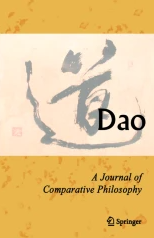
Chi-keung Chan
in Dao, Volume 24, Issue 3 (2025)
Abstract: How does evil arise? While accounts of moral development commonly emphasize cognition-related factors—such as rationality, knowledge, reasoning, consciousness, and deliberation—the Neo-Confucian philosopher Liu Zongzhou 劉宗周 (Jishan 蕺山, 1578–1645) offers a strikingly different perspective by drawing attention to their potential dangers. As the Chinese idiom cautions, one can be “fooled by cleverness”: human knowing, in certain modes, can go astray. Drawing on Liu’s affect-centered moral theory, this essay aims to: (1) elucidate how cognitive processes contribute to the emergence of wrongdoing, and examine the mechanisms by which wrongdoing gives rise to moral evil; and (2) question the common assumption that moral practice consists solely in conscious and deliberate effort, and propose instead that it also involves an effortless, self-sustaining dimension that operates beyond reflective self-awareness. By incorporating insights from moral psychology, this essay ultimately seeks to enrich and deepen our understanding of wrongdoing and moral evil within a cross-cultural philosophical context.
About the author: Chi-keung Chan was a HYI Visiting Scholar from 2022-23.
